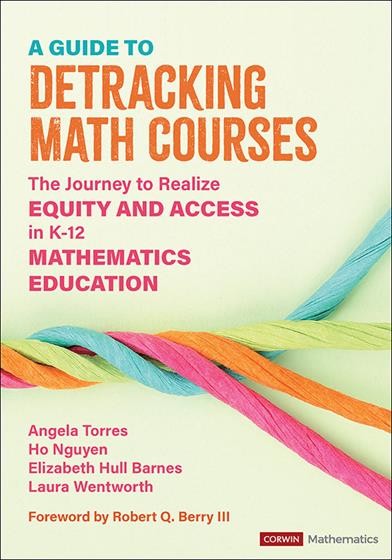Hands-on, Practical Guidance for Educators
From math,
literacy, science, equity, multilingual learners, and SEL, to assessment, school counseling,
and education leadership, our books are research-based and authored by experts
on topics most relevant to what educators are facing today.

A Guide to Detracking Math Courses
The Journey to Realize Equity and Access in K-12 Mathematics Education
Foreword by Robert Q. Berry III
Designed for all educational partners, from policymakers to math coaches and teachers, this book provides a model for detracking efforts to create greater equity for all.
Product Details
- Grade Level: K-12
- ISBN: 9781071880746
- Published By: Corwin
- Series: Corwin Mathematics Series
- Year: 2023
- Page Count: 248
- Publication date: May 05, 2023
Review Copies
Review copies may be requested by individuals planning to purchase 10 or more copies for a team or considering a book for adoption in a higher ed course. Request review copy




